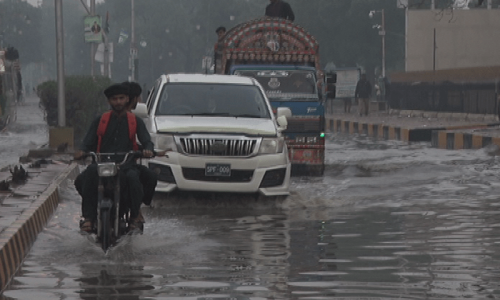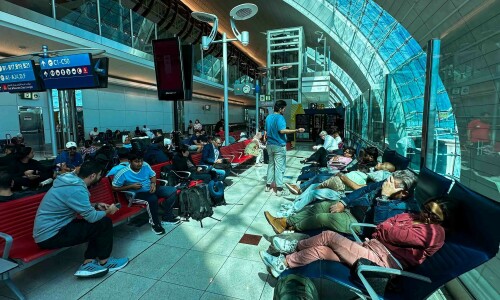KARACHI: There are several instances where women have been denied justice in cases of rape on account of lack of evidence, while in one case even a court refused to accept DNA as evidence, said a women rights activist at an advocacy meeting on Thursday.
Seeking improved health-based response to gender-based violence (GBV), rights activist Anis Haroon said the most important clause in the Anti-Rape Bill of 2015 was the one about DNA evidence, as it was a scientific proof of rape.
Besides several human rights activists, officials of the home department, police and medico-legal officers also attended the meeting, which was organised by War Against Rape (WAR), a non-profit organisation, at Beach Luxury Hotel.
Given the importance of evidence, Ms Haroon said: “Isn’t it important to have a DNA laboratory in Karachi, which is a city of more than 20 million people, instead of sending samples to Islamabad?”
Call for health-based response to gender-based violence
According to Ms Haroon, laws were useless until they were implemented. In this case, she said, it was imperative for the First Information Report (FIR) to be registered and followed by proper medico-legal tests.
“But we need to face reality and stop pushing things under the carpet,” said the activist, adding that one of the reasons behind the formation of WAR was people’s reluctance to report or talk about rape despite the increasing number of rape cases in the city in 1989.
“We only found out about them from word of mouth,” she said.
She also discussed post-rape rehabilitation and why going to police was important.
Earlier, the opening remarks were given by WAR programme officer Ruksana Siddiqui who discussed how the civil society organisation came into being in 1989. “We started working on the issue which was a taboo,” she said, adding that it was important to start a conversation about rape and Hudood Ordinance which people feared to talk about then.
These days, she said, they were going to different schools and communities in the metropolis to create awareness among students and parents.
WAR programme coordinator Nabila Qureshey explained some key findings and observations of the Anti-Rape Bill, 2015.
She said that along with DNA evidence, confidentiality, decision of appeal, and private courtroom hearing were positive aspects, but there were shortcomings also such as definition of rape, questionable quality of rape cases and punishment.
It was learnt after a consultation with police and other stakeholders that a rape survivor was never comfortable talking to a male investigation officer (IO), while there was a dearth of female IOs and MLOs, said Ms Qureshey, adding that female IOs were often threatened during a course of investigation.
Also, there was the issue of funding for DNA tests, need for forensic laboratory in Karachi and need to recommend female officers and police stations to rape survivors, she said.
The objective of the exercise, she added, was to build pressure on the relevant authorities for effective and sustainable implementation of the Anti-Rape Bill; secure survivor’s access to justice by effective adoption of protocols and procedures with regards to record keeping in GBV cases by the Sindh health department and strengthening medico-legal responses — standardised rape examination kits, consent forms in Urdu and English along with revised medico-legal certificates.
Besides, WAR was also seeking to develop a basic streamlined screening mechanism for survivors who approached medico-legal centres in Karachi.
MoU signed
A Memorandum of Understanding (MoU) was also signed by WAR and special assistant to the chief minister on women’s development Iram Khalid, on Thursday, for the purpose of networking and referral measures discussed at the meeting.
The programme was part of WAR’s project ‘Provide safe haven to GBV survivors through institutionalising two shelter homes and facilitating women survivors’ empowerment’ under USAID-supported Gender Equity Programme of Aurat Foundation.
Published in Dawn, November 11th, 2016
















































Dear visitor, the comments section is undergoing an overhaul and will return soon.